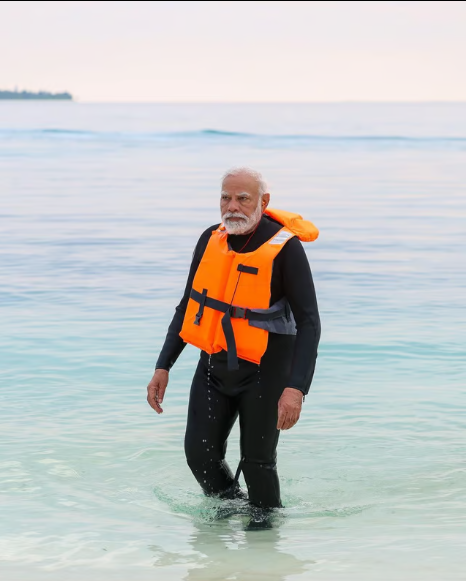How did a post from Prime Minister Narendra Modi, on his recent visit to Lakshadweep, spark off social media comments from the Maldives? How does it relate to the Maldives government’s position on India of late? We explain.

This week, Indian Prime Minister Narendra Modi, through a series of posts on X, promoting literary tourism in the Lakshadweep Islands, sparked a social media war between Maldivian politicians, government officials, and Indian social media users.
Referring to his recent visit to the Union Territory earlier this week, the Prime Minister talked about ‘the stunning beauty of its islands’ in his post, adding that ‘for those who wish to embrace the adventurer in them, Lakshadweep has to be on your list.
In his official statement, neither did the Prime Minister nor any other Indian government official make any references to the Maldives or any other island nation popular with tourists when promoting Lakshadweep. So how did this spark off social media comments, and how does it relate to the Maldives government’s position on India of late? We explain.
How the comments against India started in the Maldives
Soon after PM Modi’s post, some prominent Maldivian social media users responded to it with offensive, racist, xenophobic and derogatory comments targeted at Indians at large, as well as the Indian prime minister. Among them was Mariyam Shiuna, Maldives’ Deputy Minister of Youth Empowerment, Information and Arts, who wrote: “What a clown. The puppet of Israel Mr. Narendra diver with life jacket. #VisitMaldives #SunnySideOfLife”. In a now-deleted post, Shiuna also compared India to cow dung.

History

“Lakshadweep is a part of the Arabian Sea, comprising 36 coral islands. The term ‘Lakshadweep’ in Malayalam translates to ‘a hundred thousand islands.’ These islands are a Union Territory of India, known for their pristine white sandy beaches, vibrant coral reefs, and diverse marine life, making them a hidden treasure in the Indian Ocean.
The history of Lakshadweep is intertwined with ancient maritime trade routes and unique cultural contributions from the Indian Ocean. In the 1st century CE, a Greek mariner mentioned these islands as a source of fuel. References to these islands can also be found in Buddhist Jataka stories from the 6th century BCE. Sanskrit texts mention these islands, and their culture was influenced by Arab mariners and traders.
During the 16th century, both the Portuguese and the British left their mark on these islands. After India gained independence in 1956, Lakshadweep became a Union Territory. Since then, authorities have diligently preserved the unique cultural heritage and breathtaking natural beauty of Lakshadweep.”
